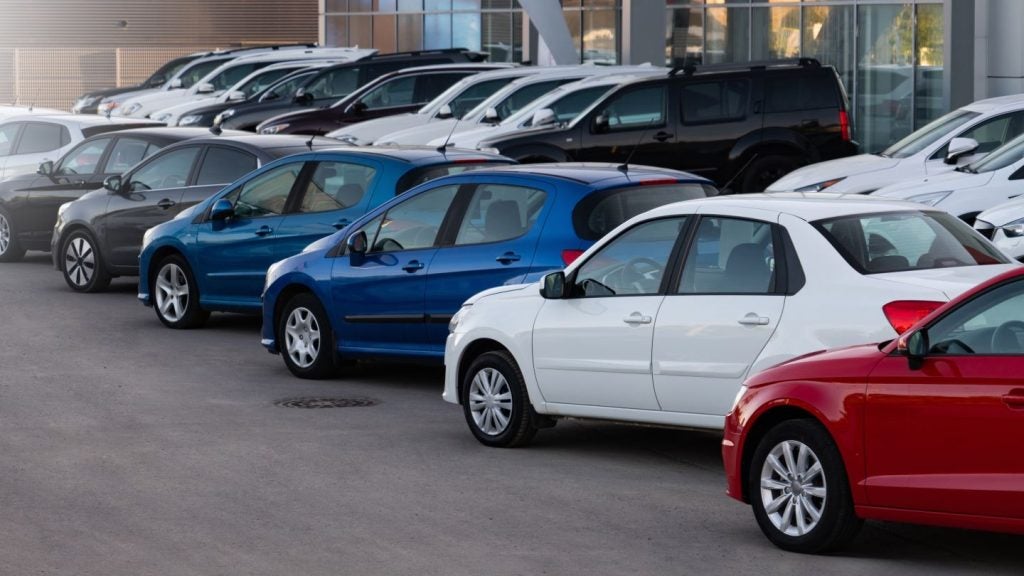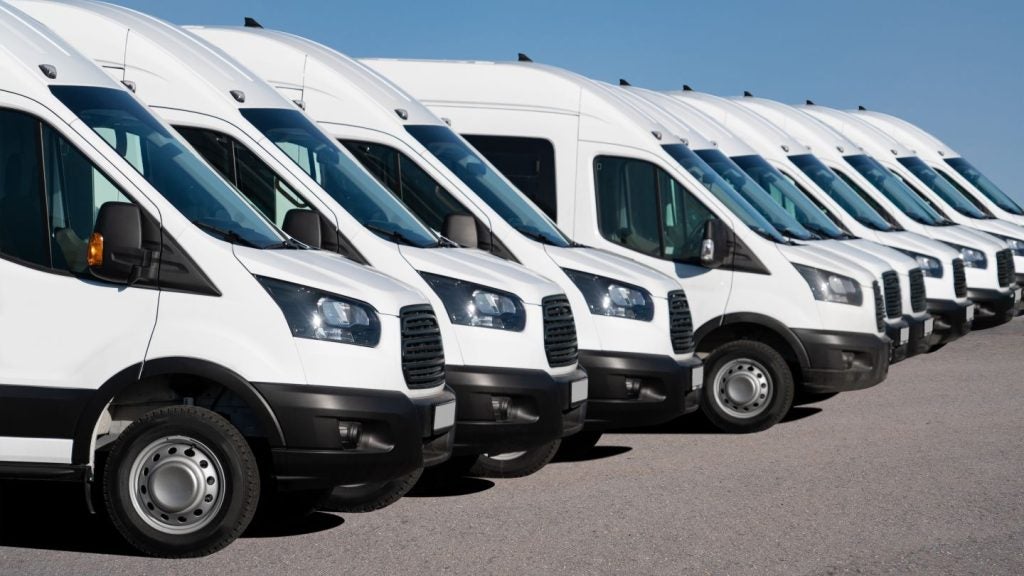Leasing companies both large and small are profiting
from advancements in online technology. For some, 90% of business
comes via the internet. Antonio Fabrizio reports on this
high-tech revolution.
 The amount
The amount
of business that car and van leasing companies source via the
internet is increasing annually.
For some leasing companies, the vast majority of
their business – up to 90% in some cases – is generated online.
This success of the online tool has partly been
driven by lessors’ efforts to make their websites useable not just
by those with fleets, but also those with far smaller
requirements.
Lex Autolease is a good example. Like most large
car leasing companies, it has its own website,
leasing4business.co.uk. Built around four years ago, it is kept
separate from the company’s corporate website, and allows users to
find offers, read car reviews and request quotes.
How well do you really know your competitors?
Access the most comprehensive Company Profiles on the market, powered by GlobalData. Save hours of research. Gain competitive edge.

Thank you!
Your download email will arrive shortly
Not ready to buy yet? Download a free sample
We are confident about the unique quality of our Company Profiles. However, we want you to make the most beneficial decision for your business, so we offer a free sample that you can download by submitting the below form
By GlobalDataIn order to drum up the volume of business Lex gets
online, according to marketing manager Ashley Procter, the company
has ensured its website has become “more accessible to those
businesses that may not be using a normal fleet channel, that
perhaps do not have fleet managers, or that only occasionally are
exposed to the specialist press”.
To achieve this, Lex has made it easier for smaller
companies to find its website through search engines, and also
given them access to easily navigable information.
Proctor said: “We put in a lot of content that was
relevant – all the key search terms that we knew smaller fleets
were entering in search engines.”
The outcome, he claimed, has been “reasonably
successful”. It has, he said, allowed Lex to present offers “to
companies that we would not normally see”.
Proctor added: “We are reaching people who are not
just fleet managers, but in lots of different functions, by and
large fleets with as little as two or three vehicles.”
Smaller lessors
In the main, however, smaller leasing
companies, as well as dealers and brokers, on the other hand, have
not yet created their own websites. Instead, they rely largely on
external websites and advertising portals.
The most popular in the UK is
www.contracthireandleasing.com. It is owned by Really Good Domains
(RGD) Ltd, which was founded around 10 years ago, at the time of
the “dot com boom”, and which currently owns around a dozen
websites covering different segments of the motor industry,
including thevanwebsite.co.uk, fleetdirectory.co.uk,
thegreencarwebsite.co.uk and carsupermarkets.co.uk.
All of the RGD websites work as advertising
platforms. Simply put, someone who is searching for a car or a van
leasing deal, Googles it, sees these ads, selects the ones he/she
likes, and then most of the time picks up the phone and calls
directly the leasing company – and will have no contact whatsoever
with RGD.
The scale of business sourced from RGD’s websites
is considerable, and this is reflected in the level of advertising
it attracts.
Contracthireandleasing.com currently has got around
300 advertisers (which include leasing companies, brokers and
dealerships). The number of offers which are included at any one
time is around 120,000.
According to RGD marketing manager Richard Lawton,
the main reason for this large volume of business has been the
company’s ability to cross-sell all its products via its respective
websites.
Not a comparison site
![]() While developing his strategy, Lawton said RGD
While developing his strategy, Lawton said RGD
purposefully avoided building a comparison website.
He said: “We do not believe that comparison
websites are generally healthy, because they force people to put
margins to the bone, as we have seen in the car insurance market,
where many big players are moving away because of the pressure on
prices.”
Lawton said that deals are shown on the website in
a chronological way, with the latest ones appearing at the top of
the search results. As soon as a deal for the same car model is
added by someone else, that pushes the previous top deal to number
two, and so on.
The focus on offers is important, particularly as
advertisers need to be competitive to get the best out of their
online presence.However, says Lawton: “Because of the website
positioning into the Google rankings, there is always a huge
audience, and this means that the majority of companies get quite a
lot of business anyway.”
To maximise exposure, RGD provides advertisers with
an online tool called ‘auto-renew’, which refreshes deals every 15
minutes.
Lawton said: “It is all about exposure, and trying
to give an equal amount of exposure to all advertisers, so the best
deals appear on top of the search, but when people search, they can
find any deals that interest them, go through it and pick up the
phone straight away.”
Because of the nature of an advertising portal, it
is difficult to have exact figures on how business is effectively
sourced through the internet.
However, RGD receives some feedback from
advertisers, which shows a definite shift towards online.
For example, one broker sold last year over 90% of
its cars – around 3,000 vehicles – through advertising on
contracthireandleasing.com.
“Quite regularly we find people are selling 40 or
50 units a month through advertising on our site,” Lawton said.
“However, much of it depends on the advertisers,
because they need to invest time on the site. They have got to do
the auto-renew, to work on the deal; it is not just signing up and
forgetting about it.”
Increase in dealerships
User statistics indicate the website has 500,000
visitors and 2m page views a month. The section of the website that
deals specifically with vans gets 200,000 views a month, and the
vast majority of them are business users. For the main leasing
website, however, the split is roughly half and half between
individuals and companies.
In terms of advertisers, Lawton said there is a mix
of dealerships, lessors and brokers – although he has seen an
increase in the number of dealerships coming on board, whereas the
slice of brokers has been reduced.
Lawton believes that, while dealerships are
becoming increasingly interested in contract hire as a way of
selling more cars, for brokers the fact a few major funders have
fallen out of the market in the recent months is having a negative
impact.
Special deals
Larger companies such as Lex Autolease do not
advertise directly with these advertising portals but, because they
have a direct channel as well as a broker channel, their brokers
often do.
What Lex actively does, according to Procter, is to
try to negotiate directly with the vehicle manufacturers to see if
there are any special deals that it can have above and beyond the
standard ones in order to push them through the website.
“We try to secure the best deals we can and then
utilise those deals – that is reflected in the rental we pass
through to the end users – and we highlight those on our websites,”
he said.
Lex also keeps track of website statistics. Procter
said online business has been growing every year, and there are
cycles – for instance, more visitors around new registration
dates.
Lex’s online strategy also includes putting the
most competitive offers first, ensuring that the company is able to
“offer a rental that is slightly better or equal to that of its
competitors”.
The van market is slightly different.
Procter said: “We do offers around vans, but
vans tend to be a little more complex. Because of their
specialisation, they are not as popular as the offers we have on
cars.”








